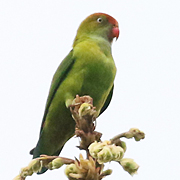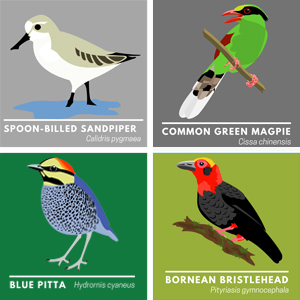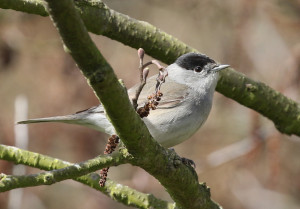
Most birders in southern England will have become used to the fact that this species has changed its status from being exclusively a summer visitor to a bird that winters in UK in small numbers. It has been discovered that these Blackcaps that winter in Britain migrate to UK from Central Europe and Scandinavia (check out this BTO Wintering Blackcaps Factsheet) meaning that the single male I saw singing on 5th January is almost certainly not in the area now and that the birds which are flooding into this area of Southeast England currently are migrants coming in from the Mediterranean region.
This morning I was showing Mary Anketell around my local birding patch and we came across good numbers of singing male Blackcaps, blasting their song out from the freshly unfurling hawthorn and elder foliage, providing a nice soundtrack to the sunny but frostily cold morning.
The first summer migrants to arrive in this area were Chiffchaffs and these birds have been singing for some weeks, although perhaps some of the wintering birds were singing on sunny days too, but Blackcap arrival has been a little later, starting at the end of March.
Since they have arrived I have noticed the numbers gradually increasing and even in this shirt space of time I can identify where males are setting up territories and surely the females will when they arrive. When they arrive? Indeed, it is also obvious that males dramatically outnumber females at the moment and a little bit of research identified a few articles and papers that mention that males arrive back on their summering grounds before females do.
- Notes on the territory & breeding behaviour of Blackcap and Garden Warbler
- Migration & wintering of the Blackcap Sylvia atricapilla on a Mediterranean island
I have always enjoyed Blackcap song and I am not the only one as it has been known by some as the “mock nightingale”. While the song may not be quite as incredible as that of Nightingale it is one of the nicest and most widespread sound of the breeding season. Listening to one bird today its song was quite scratchy and contained snippets of mimicry that for a moment made us think we were listening to a Common Whitethroat biut when the full song kicked in we could be sure a male Blackcap was about to pop up out of the brambles.
I have not heard the song of Garden Warbler for some years, due to not being in a location in Europe when they are singing, and I had to remind myself several times by listening to it on my phone to check if any of the birds I was hearing was this species rather than Blackcap. However, all the birds today were Blackcaps; hopefully a few Garden Warblers are still breeding in this area and I will find them later in the month.
When many species of birds are in decline the Blackcap is a happier story with over 1 million breeding pairs in UK and holding their own or even increasing in number. This is probably due to their adaptability. Essentially a bird of broadleaved woodland they are also happy in hedgerows, scrubby areas and even gardens, particularly in winter. They feed on a wide variety of foods which makes them even more adaptable. Their choice of food includes seeds, fat, berries and, of course, insects.
Blackcap song follows a similar fairly melodious pattern but I can easily hear differences in the richness of song between some individuals. Not all male Blackcaps have songs that are predominantly melodious, some have more scratchy songs and presumably these are birds that are still learning their song.
Listen to this clip for a good example of Blackcap song.
Male Blackcaps build “cock nests” to impress the females before they build a proper nest together, I will be trying to spot one of these when the females arrive in numbers and hopefully lead me to one. Currently I am also left waiting for photos of the brown-capped females…coming soon.


 April 8th, 2021
April 8th, 2021  Nick
Nick 

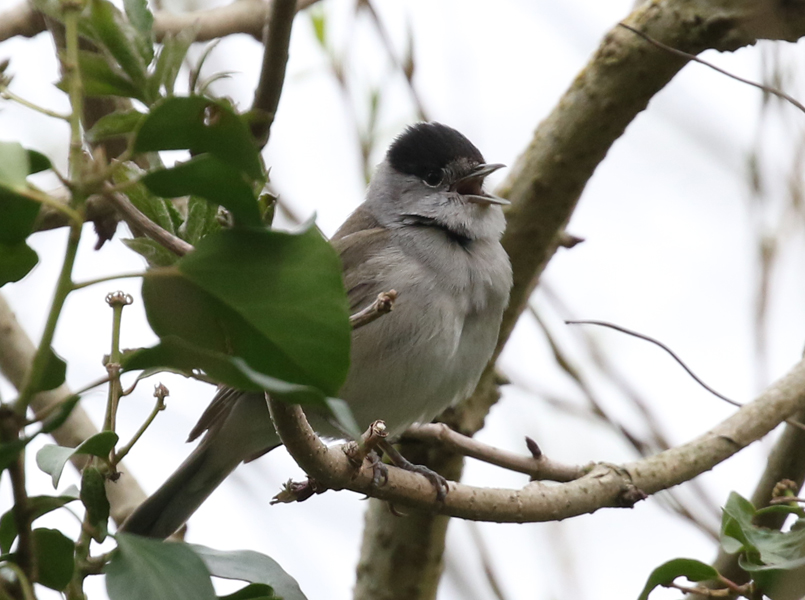
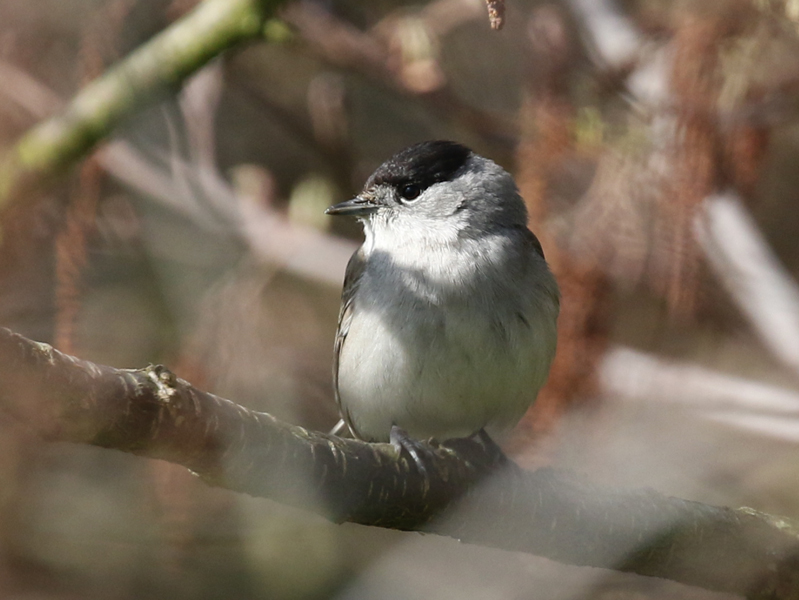
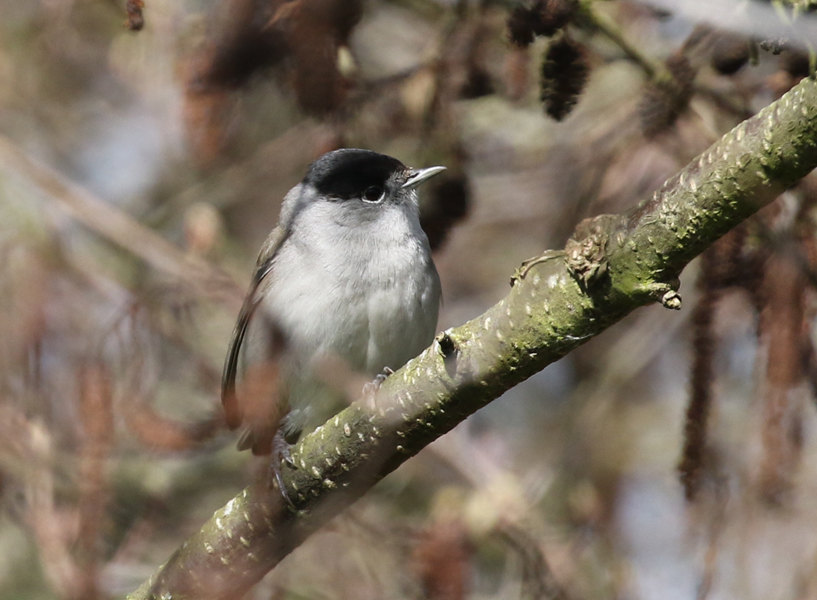
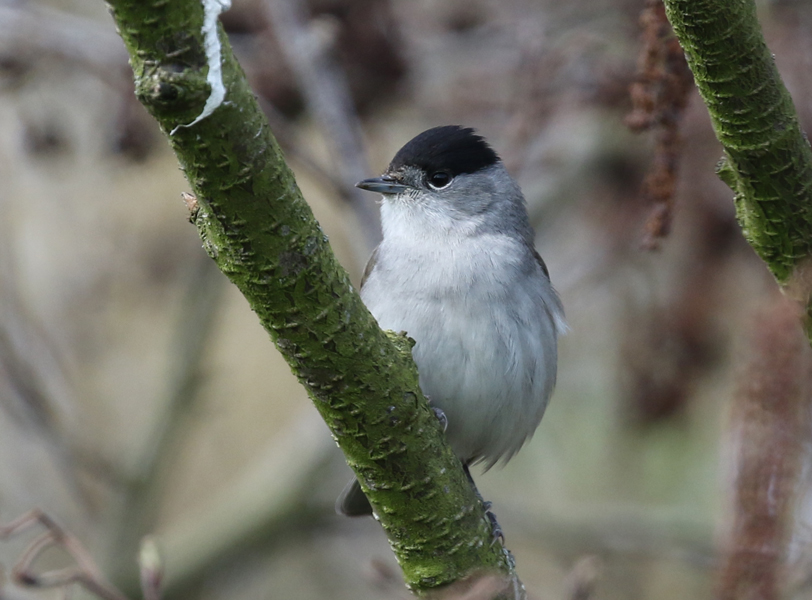
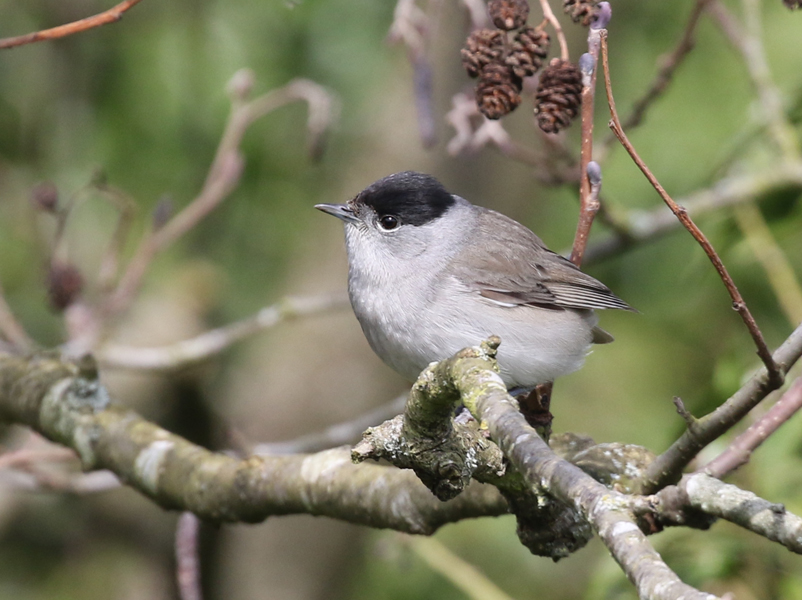
 Posted in
Posted in  Tags:
Tags: 

